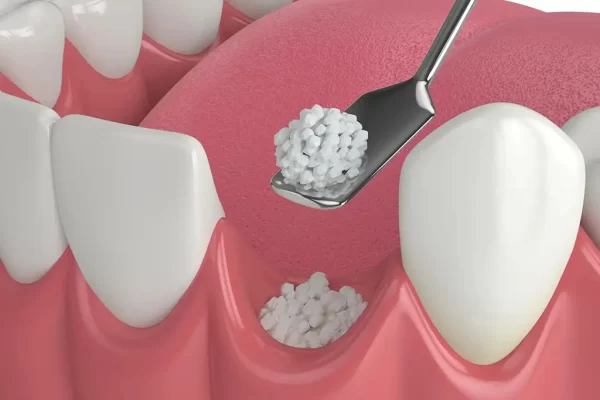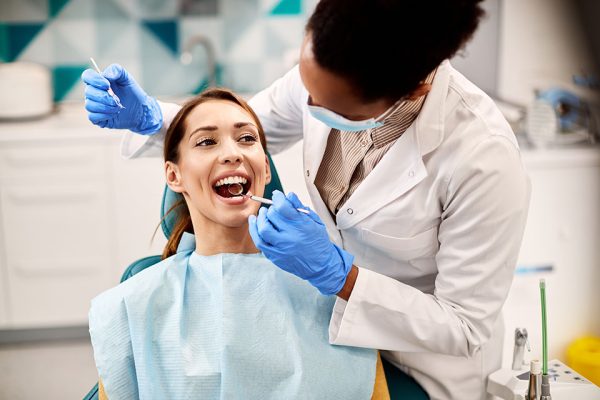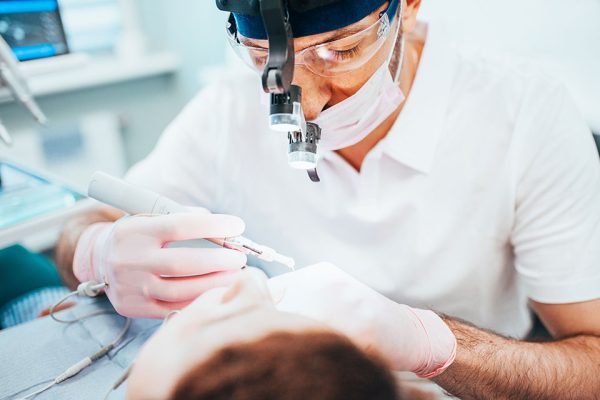Achieve a Better Smile with Our Dentist in Northridge
If you’re considering dental implants or need to restore the structural integrity of your jaw, you may be a candidate for dental bone grafting. At Dr. Kevin Gropp’s dental practice in Northridge, CA, we specialize in advanced oral surgery techniques, including bone grafting, to ensure optimal results for your dental health and aesthetics.
To schedule an appointment and learn more about our dental bone graft services, contact our Northridge dentist today at (818) 709-8645.

What Is Dental Bone Grafting?
Dental bone grafting is a surgical procedure that involves adding bone material to your jaw to strengthen it and prepare it for procedures like dental implants. This treatment is essential for patients who have experienced bone loss due to tooth extractions, gum disease, or trauma. The added bone material fuses with the existing bone over time, providing a solid foundation for dental implants or other restorative treatments.
Types of Bone Grafts
There are several types of bone grafting material, including:
- Autografts: Bone is taken from another area of your body, such as the hip or chin, and grafted onto your jaw. This method is highly effective as it uses your own bone tissue, reducing the risk of rejection.
- Allografts: Bone material is sourced from a donor, typically from a bone bank. This option avoids the need for a second surgical site.
- Xenografts: Bone is obtained from an animal source, usually bovine. The bone is thoroughly processed to ensure safety and compatibility.
- Alloplasts: Synthetic materials are used to create bone-like structures. These materials are biocompatible and stimulate new bone growth.
Benefits of Dental Bone Grafting
Dental bone grafts can provide patients with the following benefits:
- Improved Oral Health: By restoring lost bone, bone grafting helps maintain the integrity of your jaw, preventing further dental issues.
- Foundation for Dental Implants: Bone grafting is often a critical step in the dental implant process, ensuring implants are securely anchored.
- Enhanced Aesthetics: A strong jawbone supports facial structure, contributing to a more youthful appearance.
- Prevention of Bone Loss: Bone grafting can stop or slow down the process of bone loss, preserving your natural teeth and gums.

Why You Might Need a Bone Graft
A dental bone graft is typically required in the following situations:
- Tooth Loss: When a tooth is lost or extracted, the surrounding bone begins to deteriorate. Bone grafts help preserve and rebuild this bone.
- Periodontal Disease: Severe gum disease can cause bone loss, leading to weakened support for teeth. Bone grafting can restore this lost bone.
- Trauma or Injury: Accidents or injuries that affect the jawbone may necessitate bone grafting to repair and rebuild the damaged bone.
- Dental Implants: For dental implants to be successful, there must be enough bone in the jaw to support them. Bone grafting ensures there’s adequate bone density.
The Dental Bone Grafting Procedure
You can expect the following to happen during the dental bone graft procedure:
- Consultation and Evaluation: Dr. Gropp will conduct a thorough evaluation, including X-rays and possibly a CT scan, to assess your jawbone’s condition. He’ll discuss your medical history, dental needs, and the best bone grafting options for your situation.
- Preparation: Our Northridge dentist will create space for the dental bone graft. This can be done by removing a portion of the jawbone, or by removing some of the gum tissue and replacing it with donated bone from your own body
- Grafting: The chosen bone graft material is carefully placed at the site of bone loss. The area is then covered with a protective membrane to support healing.
- Healing: Over the next few months, the grafted bone material will integrate with your natural bone, creating a strong, stable foundation.
Recovery and Aftercare
Recovery from dental bone grafting is typically straightforward, but it’s crucial to follow Dr. Gropp’s post-operative care instructions:
- Pain Management: Mild discomfort is common after the procedure. Over-the-counter pain relievers or prescribed medications can help manage any pain.
- Diet: Stick to a soft-food diet for the first few days to avoid putting pressure on the graft site.
- Oral Hygiene: Maintain good oral hygiene, but be gentle around the surgical site. Dr. Gropp may recommend a special mouthwash to reduce the risk of infection.
- Follow-Up Appointments: Regular check-ups are essential to ensure the graft is healing properly.
Potential Risks and Complications
As with any surgical procedure, dental bone grafts carry some risks, including:
- Infection: Although rare, infections can occur at the bone graft site. Dr. Gropp will prescribe antibiotics to minimize this risk.
- Graft Rejection: In some cases, the bone graft may not integrate with the existing bone. This is more common with synthetic or donor grafts.
- Nerve Damage: There’s a small risk of nerve injury, which could result in temporary or permanent numbness in the treated area.
- Sinus Issues: For upper jaw grafts, there’s a risk of affecting the sinuses, which could lead to complications.

Frequently Asked Questions
The procedure typically takes 1 to 2 hours, depending on the extent of the graft needed.
In some cases, alternative treatments like ridge expansion or sinus lifts may be considered, depending on your specific needs.
If you have insufficient bone density in the dental implant area, a bone graft may be necessary to ensure the success of your dental implant surgery.
Local anesthesia is used to numb the area, so you shouldn’t feel pain during the bone graft procedure. Post-operative discomfort is usually manageable with pain relievers.
Take the Next Step in Your Smile Makeover with Northridge Dentist, Dr. Gropp
If you’ve been told you need a bone graft or are considering a dental implant, Dr. Kevin Gropp is here to help. With years of experience in advanced oral surgery and a commitment to patient care, Dr. Gropp ensures that your treatment is both effective and comfortable.
To schedule an appointment or learn more about dental bone grafts, contact our dentist in Northridge, CA, today at (818) 709-8645.

